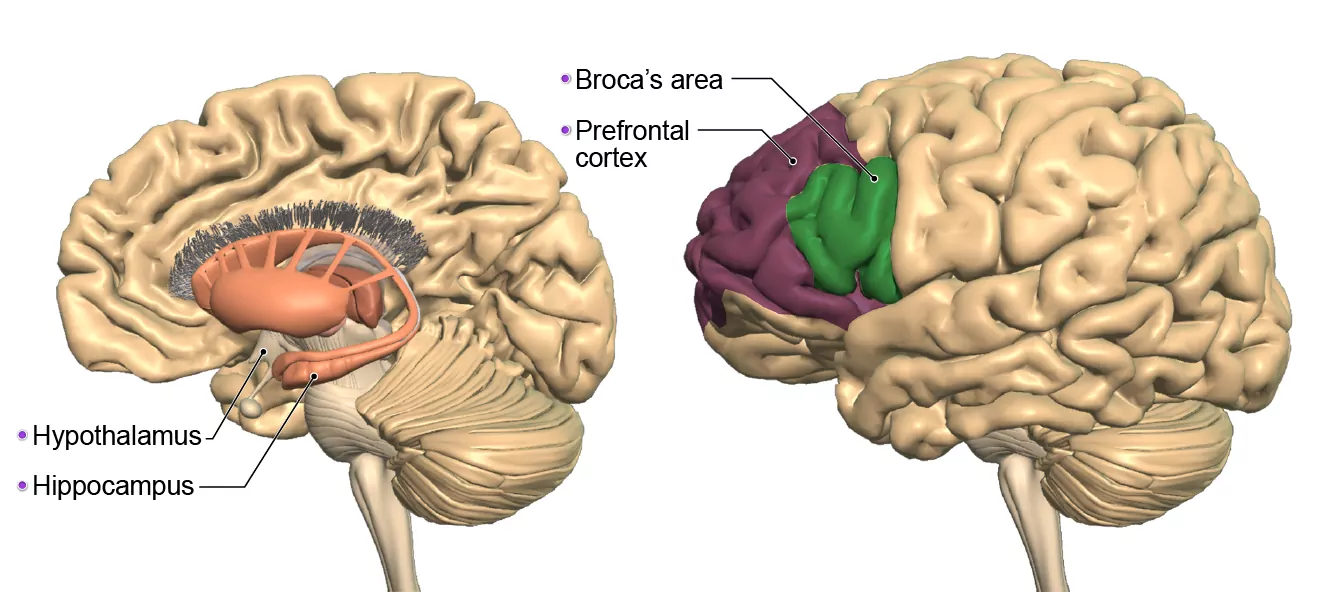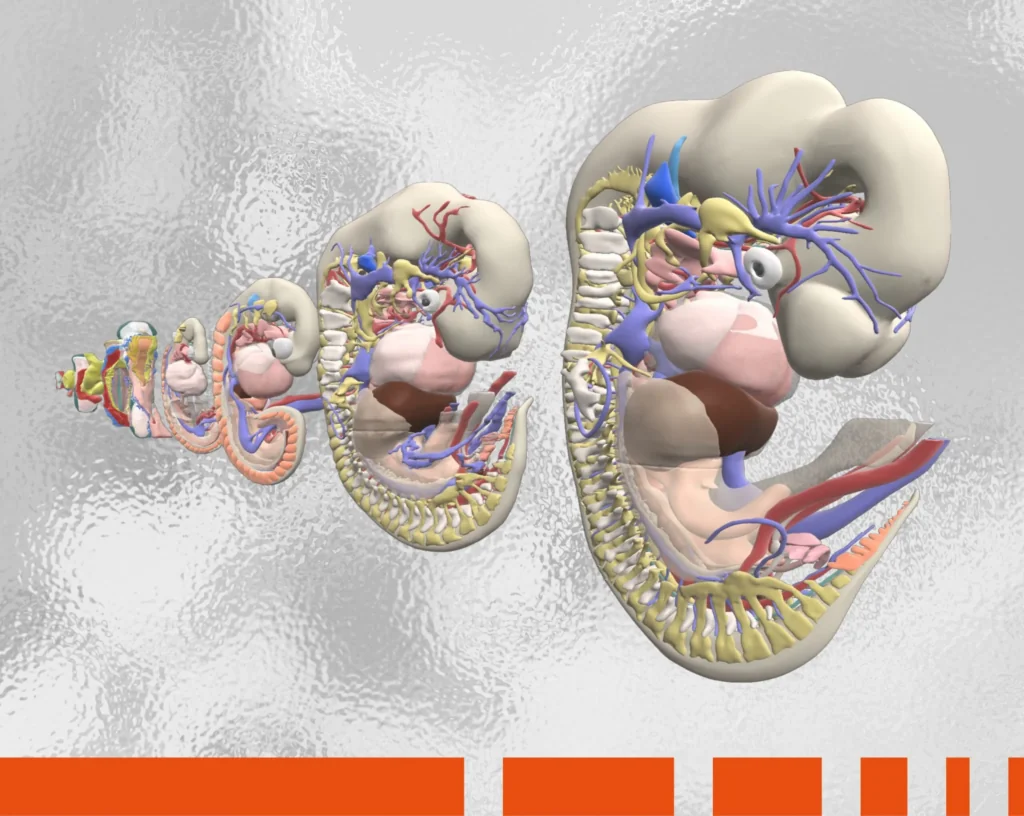Do you ever go to say something and find… well, ummm… nothing, your mind is blank? We’ve all been there! You might have noticed this happening more often in stressful situations, for instance, during exams or a presentation. Have you ever wondered why it happens and how you can manage it? Say no more, as we will explore this natural but relatively mysterious occurrence known as “mind blank.”
What is mind blank?
Although it happens spontaneously and cannot be avoided, it can be incredibly frustrating when it happens – the words are on the tip of your tongue but won’t come out of your mouth. You may feel confused, have trouble organizing your thoughts, or think more slowly than usual. Researchers have noted that when our minds are seemingly “nowhere,” not only do thoughts cease to exist, but we are also unaware of our surroundings.
Anatomy and physiology behind the mind blank response
When we experience stressful situations, our brain gets flooded with hormones and this is when our minds can go blank. There are four key areas of the brain that are most impacted when we are stressed. Understanding these regions helps us know why mind blanking happens.
-
- Hypothalamus – A small area located in the midbrain that regulates a lot of body responses, one of which is to regulate and distribute hormones that affects your mood.
- Hippocampus – Part of the limbic system that’s involved in behavioral and emotional responses. It’s the waiting area for new memories before they are stored as long-term memories elsewhere in the brain. It also plays a major role in declarative memory, when you consciously remember things, for example when studying for an exam.
- Prefrontal cortex (PFC) – It controls key functions, including determining who we are, our personality and our behavior. It also governs how we react to certain things, and these decisions are determined by past experiences.
- Broca’s area – The part of your brain responsible for language and how you put thoughts into words or write words on a page.

When studying for an exam and in a comfortable place, your body is in a state of cold cognition – your thoughts are rational and logical. However, during the exam – when you are performing under stress – you may experience hot cognition, where logical thinking is heavily influenced by emotion rather than reason. You think you are going to fail the exam and, therefore, your brain can’t think of the answers!
When we face these stressful situations, our brain perceives a threat to our body and so prepares itself for a flight-or-fight response mechanism. It fires into action, making the hypothalamus shoot a signal to the adrenal glands to pump the hormone norepinephrine (noradrenaline) into your bloodstream. When this hormone reaches the PFC, it effectively shuts down all rational thought. Secondly, another hormone called cortisol is released, whose existence serves to keep your body and brain at high-stress levels. This interferes with the brain’s ability to retrieve old memories and make new ones.
Therefore, the regions of the brain mentioned above are effectively shut down as it cannot handle the sudden rush of hormones. As a result, words don’t come out of your mouth, your memories are gone and there is nothing in your head – your mind has gone “blank.” It can be hard to describe the exact sensation of what has gone on inside your brain as you don’t have the words to articulate it. It can feel like you are in a fast-moving car when it suddenly stops for no reason in the middle of the highway, and you have no idea how to get it moving again.
Before you know it, it can turn into a vicious cycle. Preparing for an exam or a presentation is stressful enough, but when you think you will forget everything suddenly you are even more stressed. This can make mind blank even more likely to happen.
What triggers a mind blank?
Sometimes a mind blank can occur for no reason at all, but it is often triggered by trauma or stress. It’s so common it’s seen as a normal neurocognitive phenomenon. There can be several possible causes of mind blank, and you might have experienced some or all of them:
-
- Anxiety – A stressful situation can produce a lot of anxiety, especially when you’re feeling judged, embarrassed or worried that you might end up saying the wrong thing.
- Depression – When you feel overwhelmed and helpless, you may think too many thoughts and can’t focus on what you want to say.
- Fear – When we’re afraid, so much of our body’s energy is directed elsewhere and it feels like we have forgotten how to speak.
- Lack of sleep – Sleep deprivation can lower your alertness and concentration levels, making it difficult to focus and increasing the chance of mind blank.
Ways to manage mind blank
Here are four helpful strategies to recompose yourself when your mind goes blank:
-
- Pause – This is your time to give yourself some space. Your mind has gone blank, so what next? If in an interview, repeat the question to give yourself time to formulate a reply. When in a presentation, take a sip of water and glance over your notes. There is also no shame in admitting your mind has gone blank, it happens to most people!
- Breathe – Take a big breath. Not only does it fill your body with much-needed oxygen, but it calms your brain’s fight-or-flight response.
- Helpful self-talk – Let go of any negative thoughts you have about yourself. Thinking positively will help offset the initial anxiety of having a mind blank. It’s not a big deal and it is not permanent. You can recover and carry on with your exam, presentation, everyday conversation, etc.
- Reset – Restart what you were doing just before the mind blank happened. Re-reading an exam question or skipping it and tackling the next one can help. In a presentation, reading the previous sentence can help jog your memory or asking someone to take over can give you the space you need to collect your thoughts.
The images in this post are from from Primal’s 3D Real-time. To learn more about this or other Primal learning resources, please fill in the form here and our team will be in touch.

